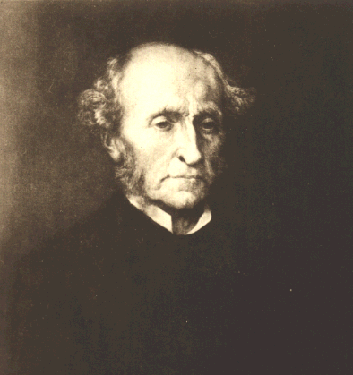
The dichotomy between Noonan and Thomson:
Noonan is a strong proponent of the belief that abortion is morally incorrect in almost every single circumstance. From the essay, we see that Noonan assumes that the fetus is in fact a human being (or should be treated so), and that there is only reason for abortion if there is some outstanding circumstance. For example, he cites cancer as a factor that threatens the life of both the mother and child (fetus), and therefore accepts abortion. He spends the bulk of his paper trying to prove what those against abortion promote – that a fetus is a human being.
Through his examples, I felt like Noonan creates a loose argument against abortion. He says if there is no reason to harm a human being, then that act of harming is morally wrong. He then continues to say that if the act is abortion, then the act is harming a human being. The only way he qualifies this is because he believes that a human fetus is a human being. Due to this, he believes abortions are an act of harm to human being and have no reason, as long as factors such as cancer are involved. Since he states both harming a human for no reason is morally wrong that that abortion without a factor like cancer is an act of harming a human being, he indicates that abortion without a factor like cancer is morally wrong. He cites a fetus’ lack of viability as a reason to disallow abortion (Noonan 353). Based on his assumption that dependence is not ended by viability, the fetus is still dependent on someone’s care in order to exist, even three to five years after birth.
Thomson, on the other hand, is in favor of allowing abortion. In her work, she accepts that for the sake of argumentation, the human fetus can be deemed as a human being. Her argument, however, challenges the ability for one to come to the conclusion that all cases of abortion are morally wrong, only stemming from the premise that the fetus is a human being.
She stages a simple argument that reads: a fetus is a human and every human has the right to live, therefore, a fetus has the right to live. A mother has the right to decide what happens to her body, but the fetus’ right to live outweighs a mother’s right to decide what happens to her body – therefore, an abortion cannot occur, as it would kill a human who has the right to live (Thomson 48). Thomson demonstrates that this argument is unsound through the famous violinist experiment, in which one is plugged into a famous violinist to keep him alive. She argues that we are not required to do this, even if the violinist dies. The same way, a fetus is “plugged into” a mother, and if one does not desire the baby, it is not immoral to unplug it.
I thought the best part of the Thomson article was her defintion of the right to life: “The right to life consists not in the right not to be killed, but rather in the right not be killed unjustly” (Thomson 57). Under this definition, abortion is morally permissible, especially in cases where the mother’s life or well being in threatened (such as in cases of rape).
An interesting piece of abortion ethics lies in the arguments about whether a fetus that will knowingly be born with physical and mental birth defects should be allowed to be aborted. Arguments against the abortion of disabled fetus’ follow as such: disability as a reason for abortion implies that disabled people or their lives are less worthwhile than those who are not disabled. Another could say that most disabled people say that they would much rather be alive that be killed in the womb, and that allowing abortion based on disability disallows for the individual concerned (assuming the fetus is a human being with brain activity and thought) to make a choice. What to you guys think about these arguments? Does anyone have a strong position?
Works Cited:
Noonan Jr., John T. “Abortion is Morally Wrong.” Famine, Affluence, and Morality. N.p. 353-357. Print.
Thomson, Judith Jarvis. A Defense of Abortion. Philosophy and Public Affairs, Vol. 1, No. 1. (Autumn 1971), pp. 47-66.
“Disability in the Foetus.” BBC News. BBC. Web. 7 Nov. 2014.

